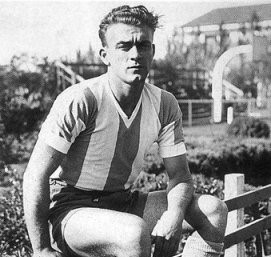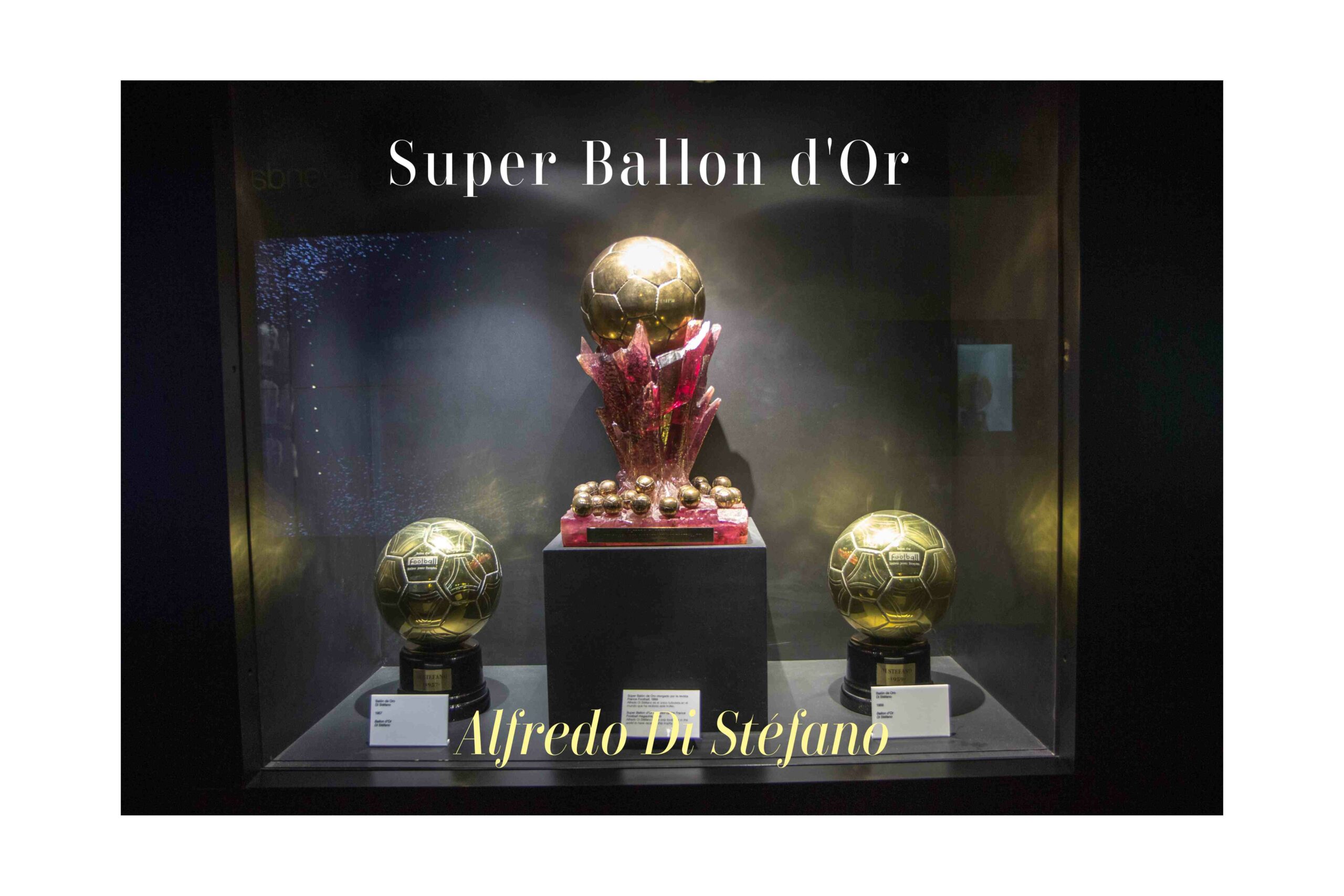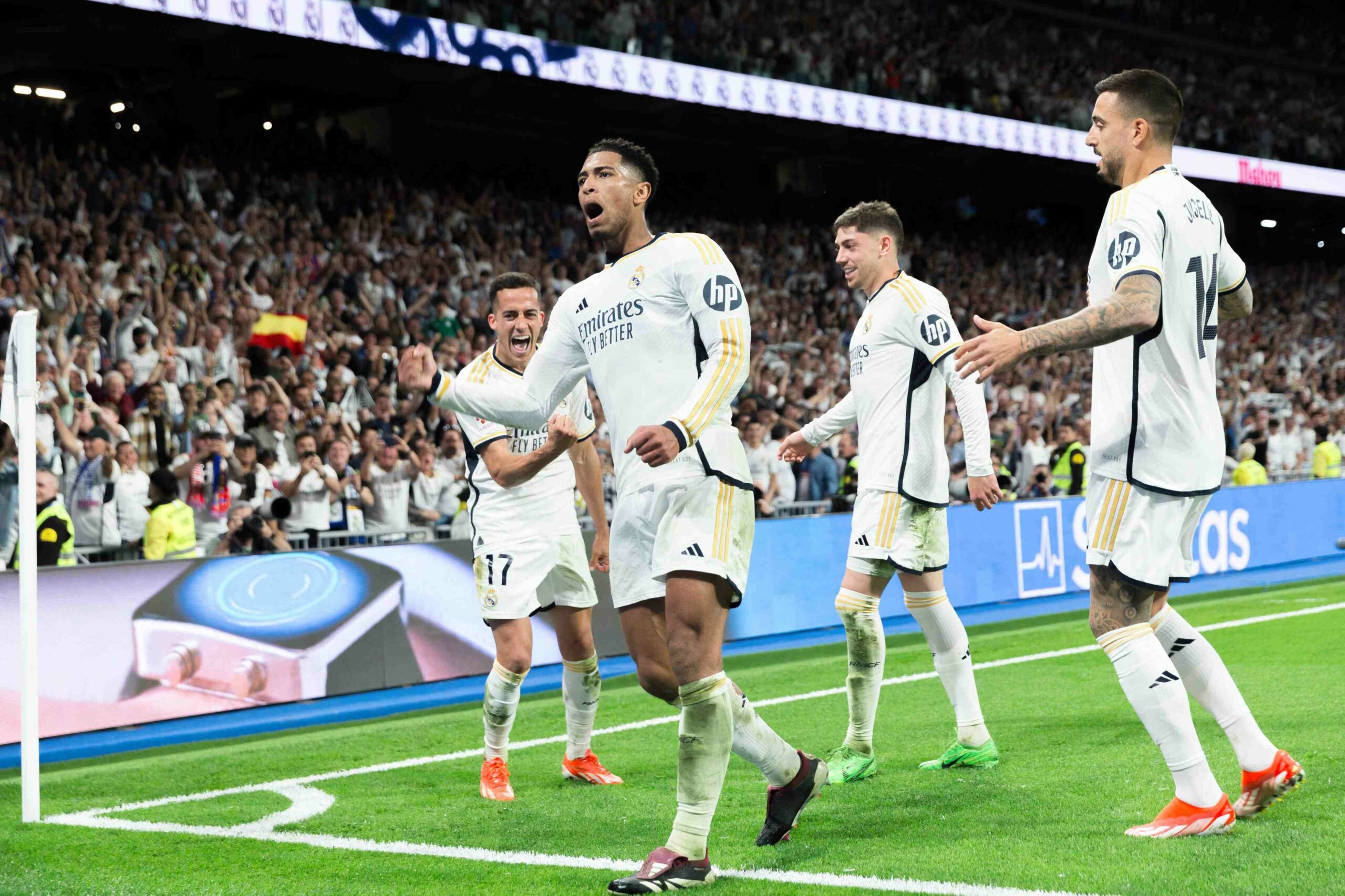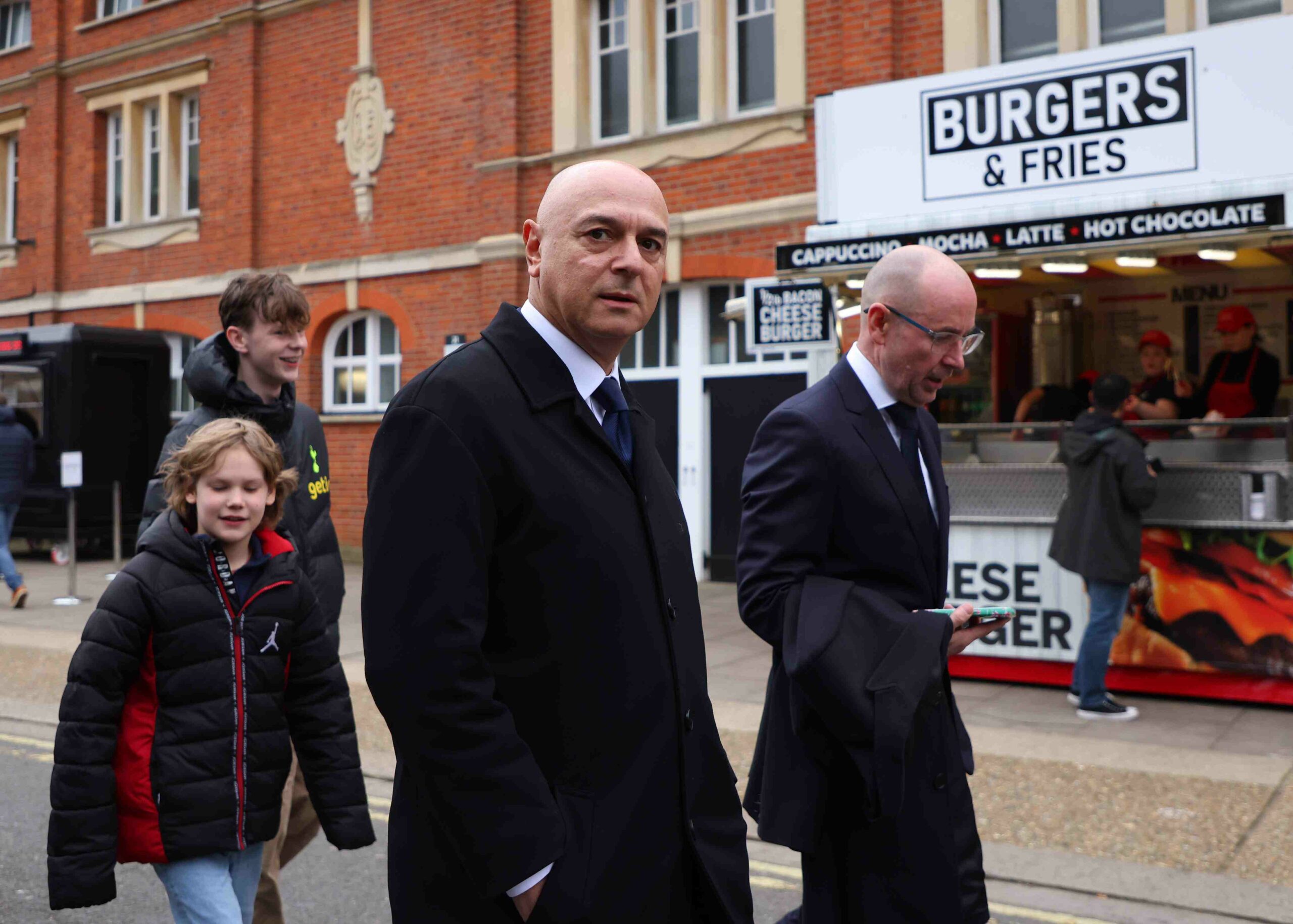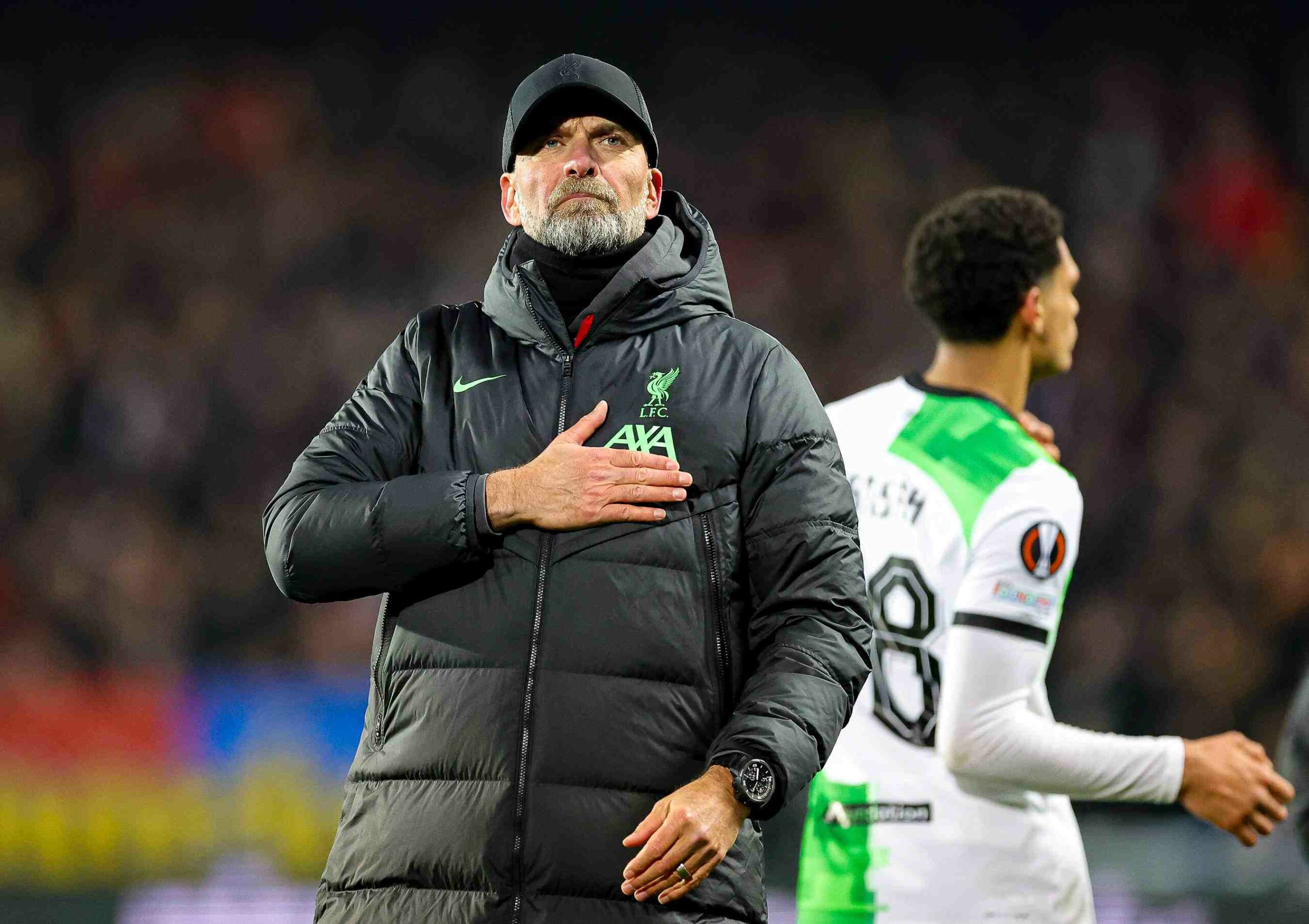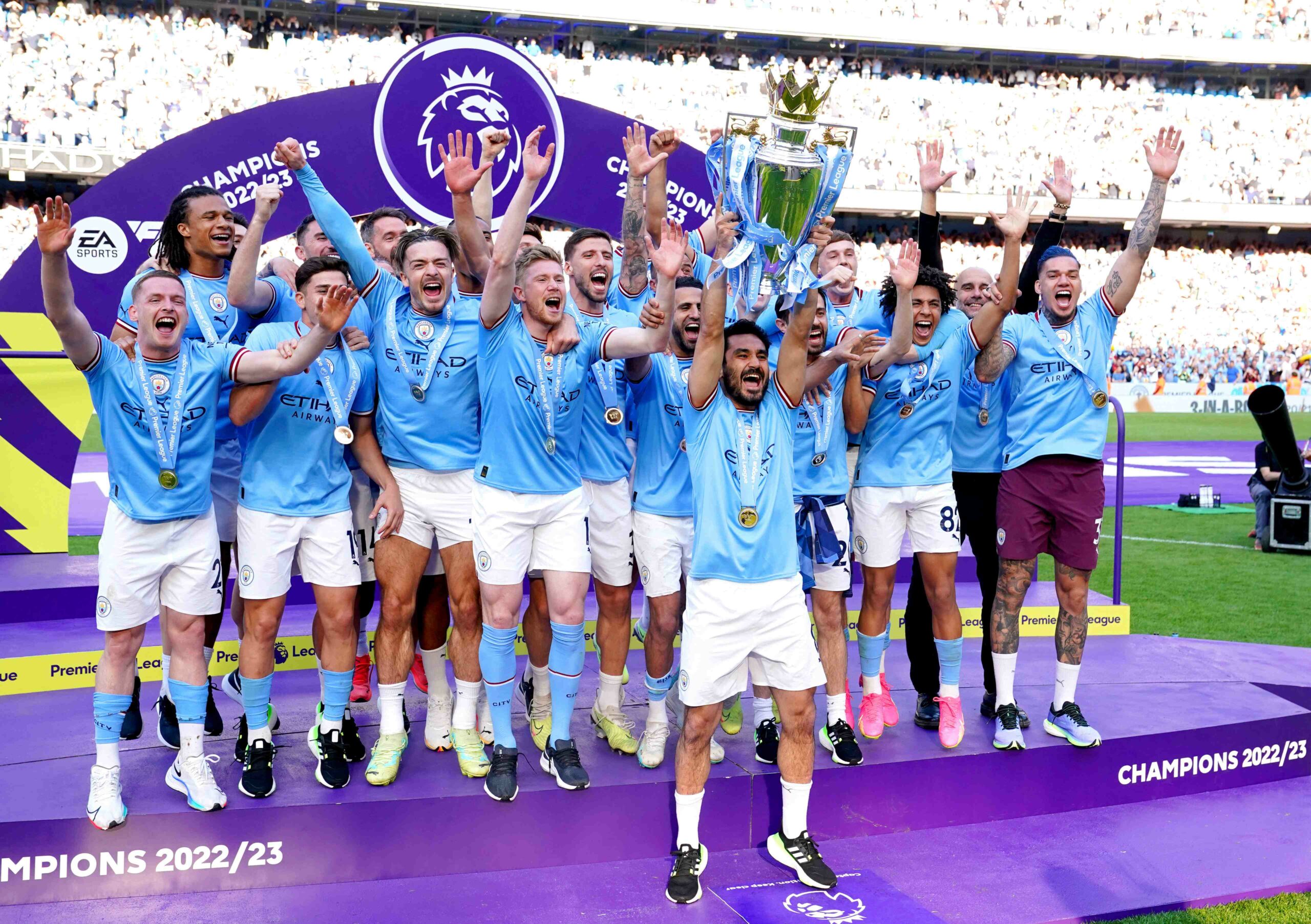Proven! These Are The All Time Greatest Footballers- FootySamba
We look to take inspiration from their performances on the pitch, taking into account personal accolades and trophies won, while also using our own personal view on the importance of the star. Therefore, players that we were unfortunate to miss playing live weren’t able to make the list. However, this list could have easily included 200 players, but we have managed to narrow it down to look at the best players in each position before announcing our top five.
Best Goalkeepers
Gianluigi Buffon
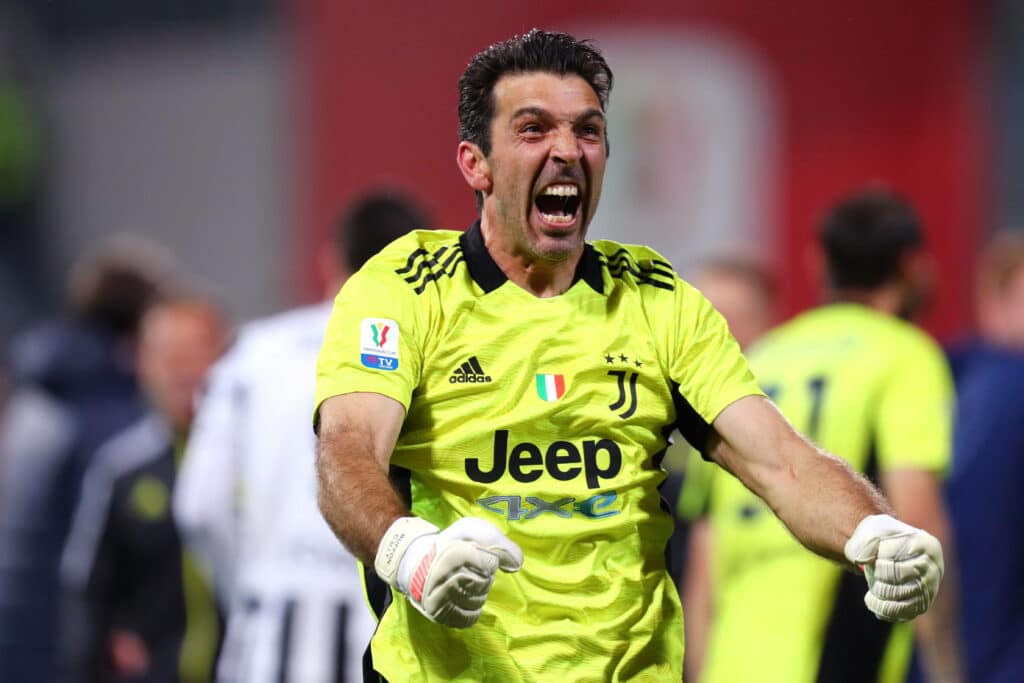
Gianluigi Buffon (source-Imago)
Age: 44 (28 January 1978)
Personal Accolades: 13x Serie A Goalkeeper of the Year, UEFA Club Footballer of the Year 2002/03, 5x IFFHS World’s Best Goalkeeper
Trophies: 10x Serie A, 6x Coppa Italia, 1x Ligue 1, 2006 World Cup
There are few goalkeepers that have made the position as popular than Gianluigi Buffon. The Italian continues to play at the very highest level to this day, as he returned to Parma following a short stint back at Juventus. Buffon was one of the most daunting goalkeepers to come up against in the world of football during his peak years, and that saw him become the only goalkeeper to ever win the UEFA Club Footballer of the Year.
At international level, he represented Italy on 176 occasions, with his crowning moment coming with World Cup glory in 2006. Buffon’s achievements and formidable nature in stopping forwards saw him named the best goalkeeper of the 21st century by IFFHS, holding off challenges from Iker Casillas and Manuel Neuer. The Italian has been a main-stay in football for many fans throughout his career, having played over 1,100 professional games.
His performances on the field have helped inspire the next wave of goalkeepers in the professional game, including Gianluigi Donnarumma, who took over as number one for the Italian national team after Buffon’s retirement in 2018. That legacy is incredibly hard for any other goalkeeper to match in the world game, and it’s only fitting that he ranks highly among our choices for the best goalkeeper of all-time.
Peter Schmeichel
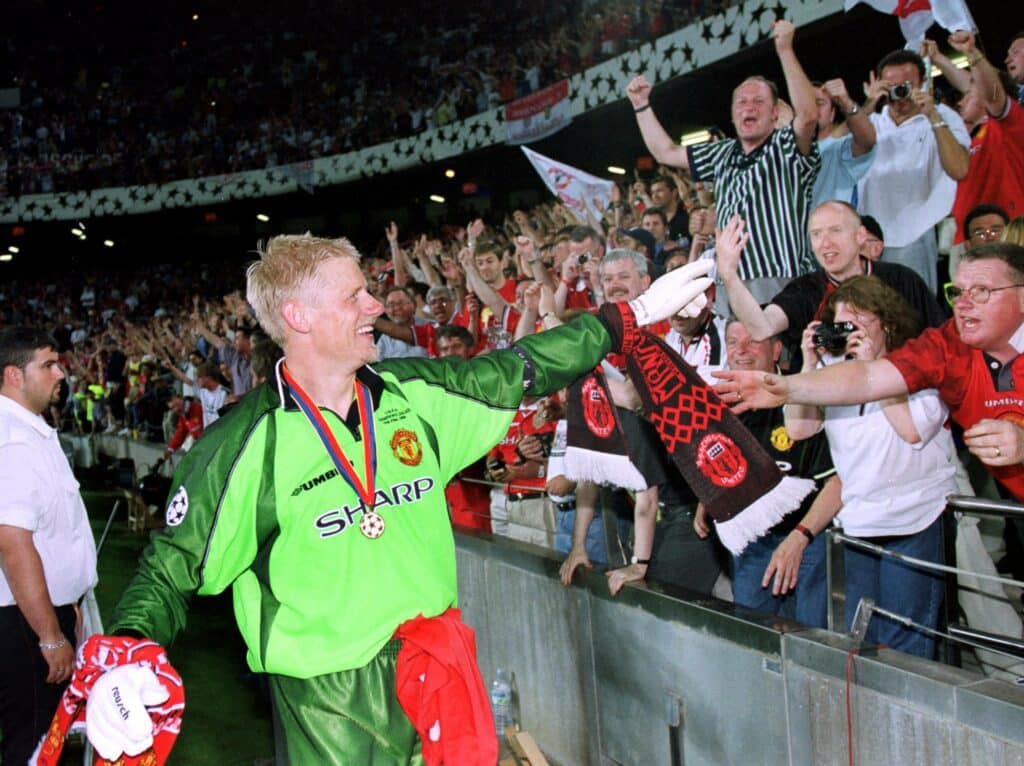
Peter Schmeichel (source: Imago)
Age: 59 (18 November 1963)
Personal Accolades: 2x IFFHS World’s Best Goalkeeper, Reuters Best Goalkeeper Ever, English Football Hall of Fame, Honorary Member of the Order of the British Empire, 1x Premier League Player of the Season
Trophies: 5x Premier League, 3x FA Cup, 1x League Cup, 1x Champions League, 1x Primeira Liga, 1992 European Championships
When it comes to figuring out who is challenging Gianluigi Buffon for the number one spot, there were a number of options. Both Manuel Neuer and Iker Casillas come close, but personal preference is for Peter Schmeichel. The Danish stopper made a name for himself in his homeland with Brondby, before joining Manchester United in 1991.
Schmeichel ensured that the United defence throughout his career was one of the hardest to breach, and fans in the stands could often hear him bellowing to defenders. His imposing figure saw him virtually cover the goal, and he was known for his star-dives that quickly became the calling card of his son Kasper during Leicester City’s memorable run to win the Premier League title.
Schmeichel was a key part of the United team between 1991 and 1999 that would win the Premier League title on five occasions. However, his biggest triumph would come in 1998-99, as he captained the Red Devils to an unprecedented treble. The hole that he left in the United goal was evident, as Sir Alex Ferguson wasn’t able to fully replace the big Dane until Edwin van der Sar’s arrival. Despite playing for United and City, Schmeichel is still beloved by United fans worldwide, and also holds the famous honour of having a Great Dane named after him in Manchester-based soap Coronation Street.
Oliver Kahn
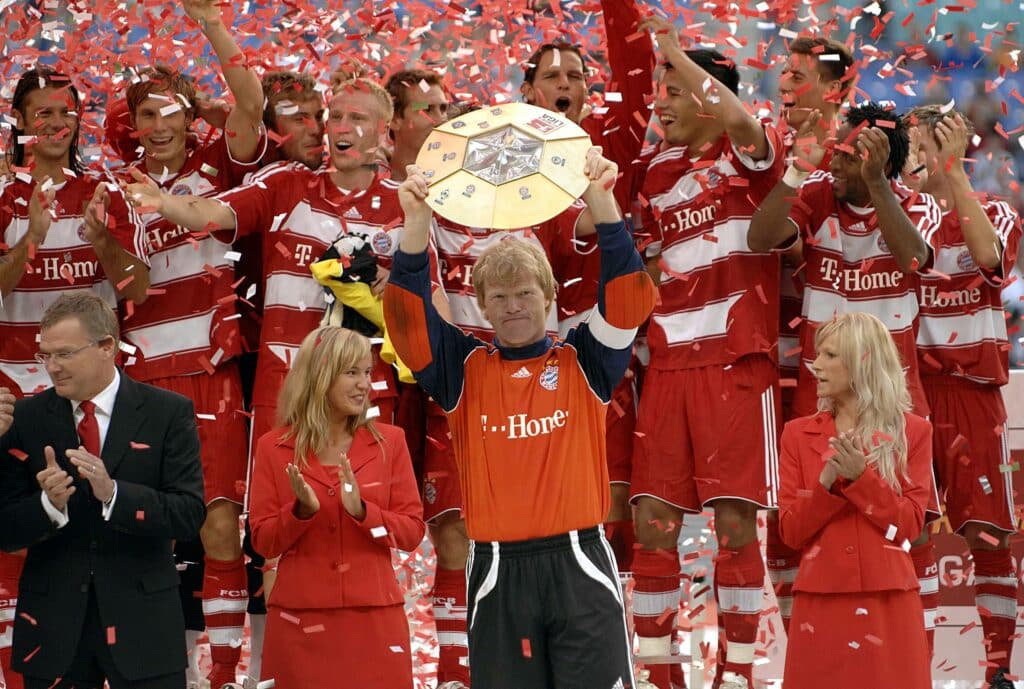
Oliver Kahn Bayern Munich (source: Imago)
Age: 53 (15 June 1969)
Personal Accolades: 7x Bundesliga Best Keeper, 2x Kicker Bundesliga Team of the Season, 3x IFFHS World’s Best Goalkeeper, 4x Best European Goalkeeper, 4x UEFA Best Goalkeeper
Trophies: 8x Bundesliga, 6x DFB-Pokal, 1x Champions League, 1x UEFA Cup
Oliver Kahn will be forever remembered as one of the most significant goalkeepers in football history. Born in 1969, the German went on to play for Bayern Munich for over ten years and represented his nation on 86 occasions. He was a pioneer in how modern goalkeepers should command their prescience in the box, and his aggressive style later saw him nicknamed The Titan.
Kahn is one of the most successful German footballers in history, having won the Bundesliga title on eight occasions. He was also a vital part of the Bayern Munich side that won the Champions League and UEFA Cup throughout his stay in Bavaria. His performances were honoured throughout is career, and in 2002 he became the first ever goalkeeper to win the Golden Ball.
The imposing goalkeeper would win a number of other personal honours throughout his career, including being named the IFFHS World’s Best Goalkeeper on three occasions. Following Khan’s retirement in 2006 from the national team, he remains one of the best German stars never to have won an international honour.
Manuel Neuer
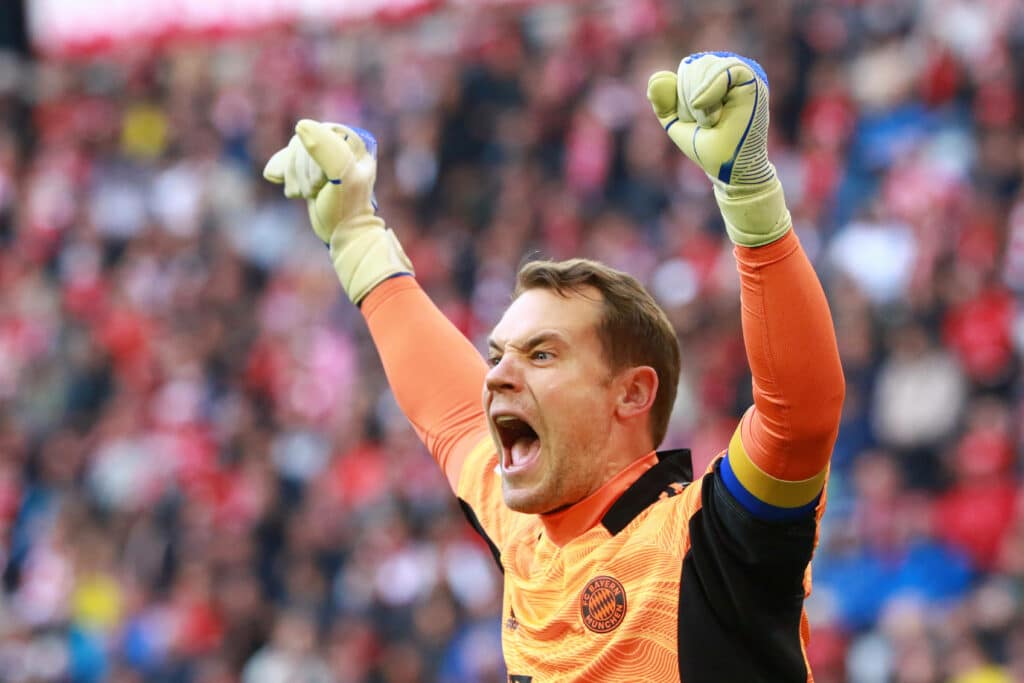
Manuel Neuer (source: Imago)
Age: 36 (27 March 1986)
Personal Accolades: 5x IFFHS World’s Best Goalkeeper, 1x IFFHS World’s Best Goalkeeper of the Decade, 4x UEFA Team of the Year, 1x World Cup Golden Glove, 8x Bundesliga Team of the Season
Trophies: 10x Bundesliga, 5x DFB Pokal, 2x Champions League, 2x UEFA Super Cup, 2x FIFA Club World Cup, 2014 World Cup
The only active goalkeeper that makes his way onto our list of the world’s best goalkeepers is Bayern Munich ace Manuel Neuer. The German star is undeniably the world’s best goalkeeper in the current era, having played a dominant role in both domestic success with Bayern Munich and international glory with Germany. Neuer became a trailblazing goalkeeper in the art of sweeping, something which is evident in many of the top team’s in the world to this day.
The goalkeeper began his career with Schalke, as he played over 150 times for the club over a five-year period. However, his big move came after he signed for Bayern Munich in 2011. In the decade that has followed, Neuer has won over 25 trophies with the Bavarian giants, including two trebles in 2013 and 2020.
He has also been a prominent fixture in the Germany team throughout his career, representing his nation on 117 occasions. He finally gained international glory with Germany at the 2014 World Cup, and he picked up the Golden Glove for being the standout goalkeeper in the tournament.
Iker Casillas
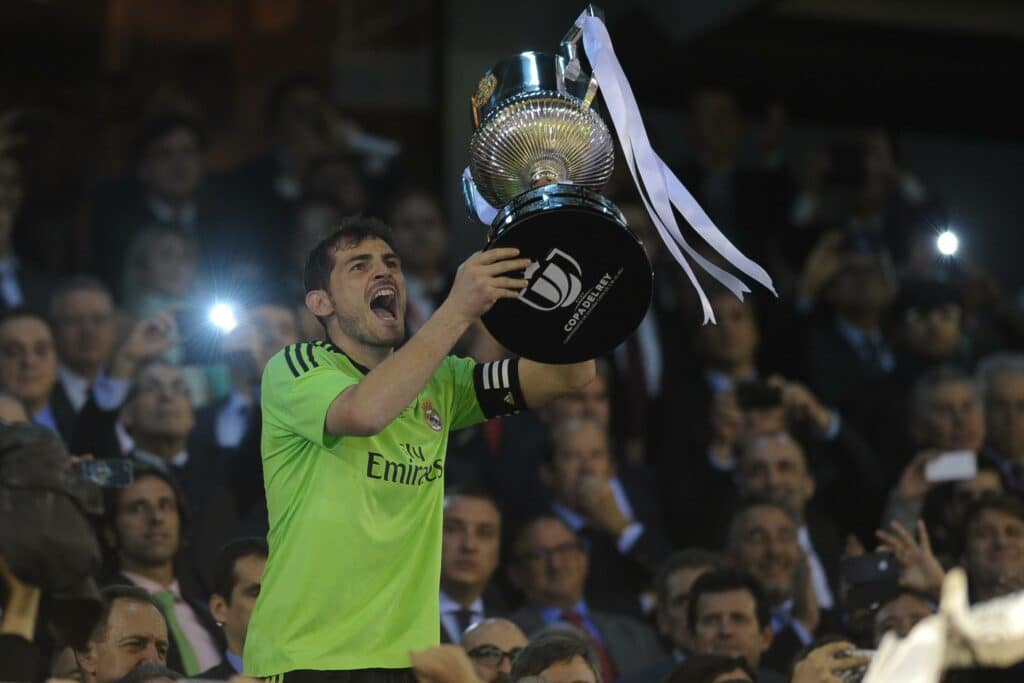
“San” Iker Casillas Fernandez (source: Imago)
Age: 41 (20 May 1981)
Personal Accolades: 2x EURO Team of the Tournament, 6x UEFA Team of the Year, 5x IFFHS World’s Best Goalkeeper, 5x FIFAPro World XI
Trophies: 5x LaLiga. 2x Copa del Rey, 3x Champions League, 2x UEFA Super Cup, 1x FIFA Club World Cup, 2010 World Cup, 2008 European Championship, 2012 European Championship
Iker Casillas is rightly regarded as one of the finest goalkeepers that we have ever seen in football. He was regarded throughout his career as one of shot-stoppers to have the fastest reactions, while he was also revered for his athleticism. The Spanish goalkeeper burst onto the scene with Real Madrid in 1999, and quickly became an ever present.
Casillas set the record for the youngest goalkeeper to play in and win the Champions League aged 19. During his time with the Spanish giants, the goalkeeper would win virtually every trophy available, including the LaLiga title on five occasions. He would later sign for Porto, ending his 25-year playing career in Madrid, and would win the Primeira Liga.
The goalkeeper also holds the record for the most appearances in the Champions League, and he has represented Spain the second most. At international level, he won 167 caps for Spain, and was a vital part of the national success enjoyed by the Spanish when winning every major tournament between 2008 and 2012.
Best Defenders
Paolo Maldini
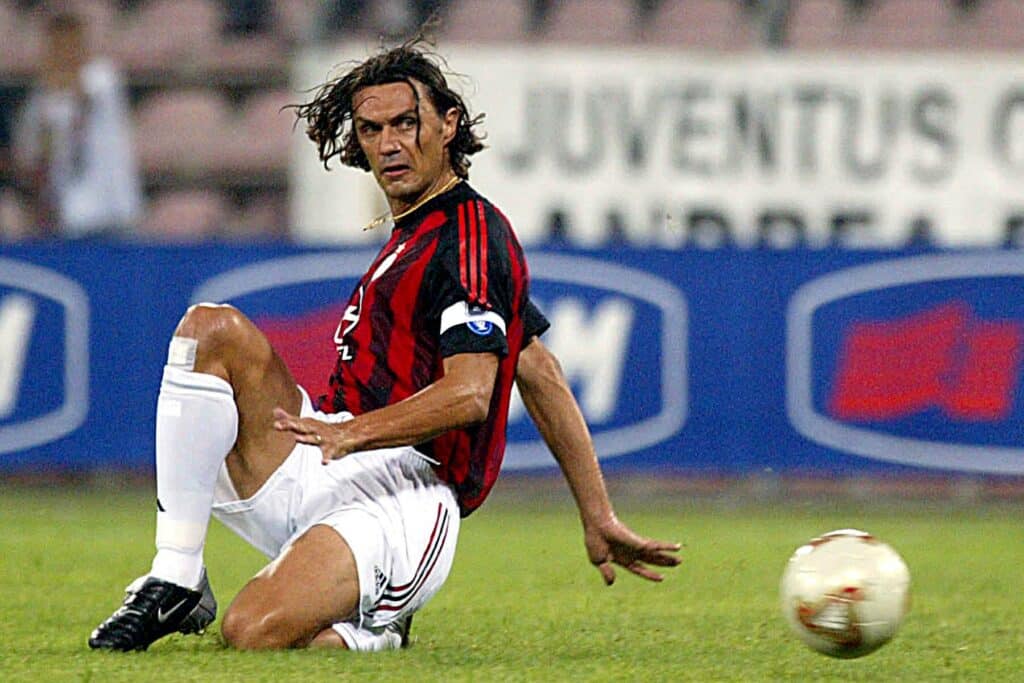
Paolo Maldini (Milan) 2002/2003, Serie A, 1. AC Milan(source: Imago)
Age: 54 (26 June 1968)
Personal Accolades: Most Appearances for AC Milan, Most Appearances in European competition, Most Appearances in Champions League Finals, Most World Cup Appearances for Italy, Fastest Goal in a Champions League Final
Trophies: 7x Serie A, 1x Coppa Italia, 5x Supercoppa Italiana, 5x Champions League, 3x UEFA Super Cup, 1x FIFA Club World Cup
There are few more celebrated defenders in Italian history than Paolo Maldini. The Italian is still widely regarded as one of the best central defenders in history, and was a vital part of the AC Milan team between 1985 and 2009. Maldini played at either left back or centre back, and was nicknamed Il Capitano by fans. The defender held the long-standing record for most appearances in Serie A with 647, before Gianluigi Buffon overtook the benchmark. His role in club football remains as important to this day, as he serves as the technical director for AC Milan.
On the pitch, Maldini spent all 25 years of his professional career with Milan, before he eventually retired from playing aged 41 in 2009. During his time at the San Siro, Maldini won 26 major trophies, including five victories in the Champions League. Like a fine wine, Maldini improved as he aged, and he was awarded the UEFA Club Football Awards Best Defender accolade aged 39 in 2004. His legacy at Milan saw him achieve the record for most appearances, and most Champions League wins, and they were honoured at the conclusion of the 2008-09 season when his famous number three jersey was retired.
The Italian also represented his national team for 14 years, before retiring in 2002. However, he would never add a World Cup or EURO success to his roll of honour. The closest that he would come would be in 1994 and 2000, as Italy finished as the runners-up at the World Cup and EUROs, respectively. Still, his performances were honoured, as he finished second in the FIFA World Player of the Year award in 1995, and third in the Ballon d’Or rankings in both 1994 and 2003.
Franz Beckenbauer
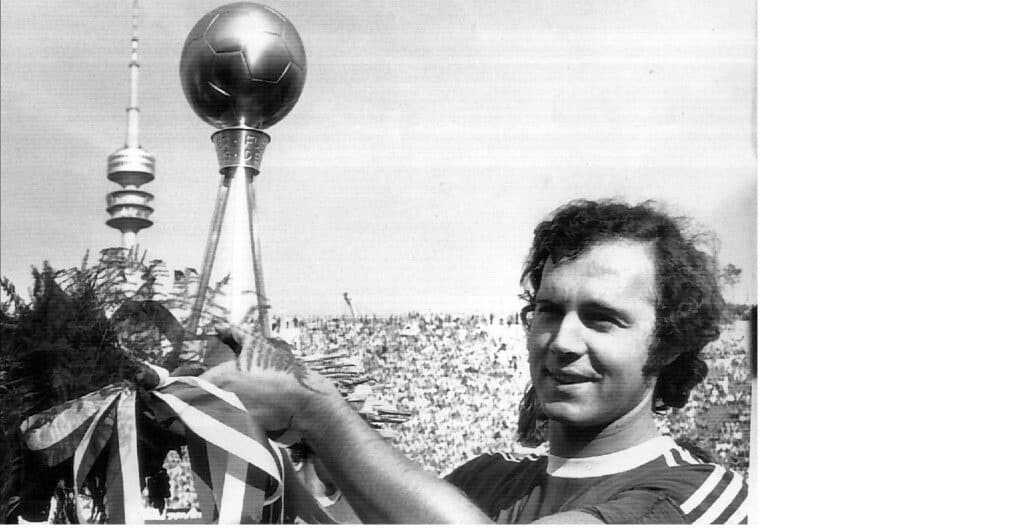
FRANZ BECKENBAUER World Cup winner (s: Imago)
Age: 77 (11 September 1945)
Personal Accolades: 2x Ballon d’Or, 4x German Footballer of the Year, 1966 FIFA World Cup Best Young Player, 2010 Golden Foot, 3x FIFA World Cup All-Star Team
Trophies: 5x Bundesliga, 4x DFB-Pokal, 3x European Cup, 1974 FIFA World Cup, 1972 European Championships
Frank Beckenbauer remains one of the great pioneering footballers in the history of the sport. The German was known as Der Kaiser throughout his career due to the elegant style that he played with. He began his career as a ball-playing midfielder, before reverting to a central defender. Beckenbauer is revered for the role he played in inventing the modern sweeper, and his success spun across two teams in the Bundesliga.
The first 12 years of his career were spent with Bayern Munich, as the club won three European Cups between 1974 and 1976. That achievement meant that he became the first captain to ever win that prestigious honour in three consecutive seasons. During his time in Bavaria, he also won the Bundesliga title on four occasions. One further success would arrive during a two-year stint with Hamburg between 1980 and 1982.
However, it was his performances on the global stage that rose him to international acclaim. Representing West Germany, he won the World Cup in 174, and won the European Championship in 1974. He is also part of an illustrious group of ex-players that have won the World Cup as both player and coach, as he led West Germany to success at the 1990 World Cup, making him one of the greatest football managers of all time. Beckenbauer’s performances continued to impress, and the records followed, as he was named in the World Team of the 20th Century in 1998, and the Ballon d’Or Dream Team in 2020.
Carles Puyol
Age: 44 (13 April 1978)
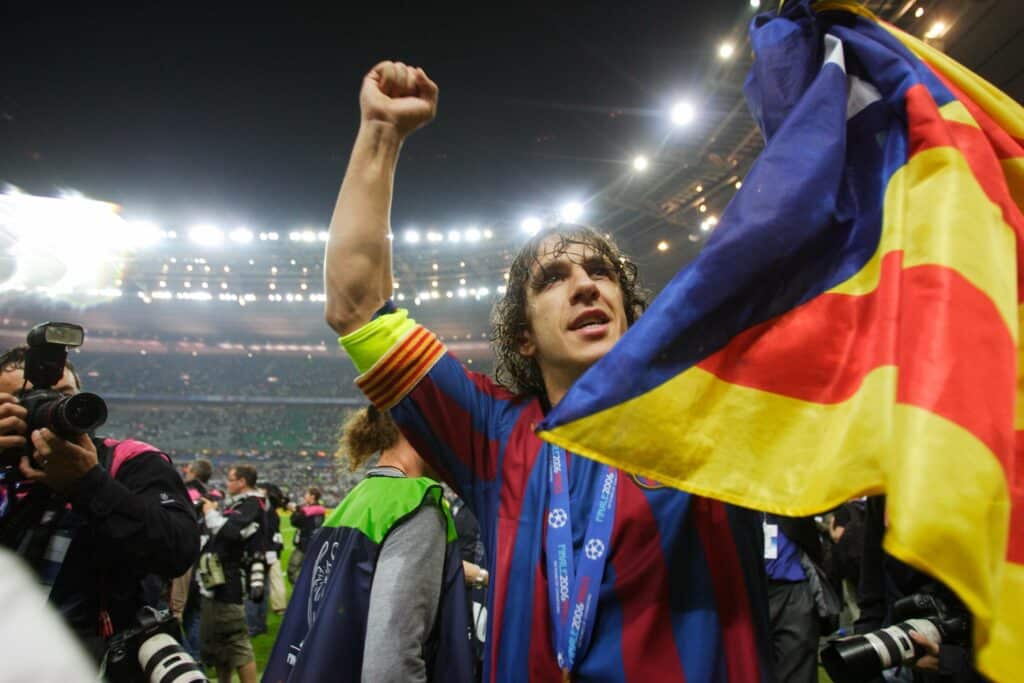
Carles Puyol (source: Imago)
Personal Accolades: 4x ESM Team of the Year, 6x UEFA Team of the Year, 2006 UEFA Club Best Defender, Gold Medal of the Royal Order of Sporting Merit, Prince of Asturias Award
Trophies: 6x LaLiga, 2x Copa del Rey, 4x Supercopa de Espana, 3x Champions League, 1x UEFA Super Cup, 2x FIFA Club World Cup, 2010 World Cup, 2006 European Championships
The art of defending has been lost slightly in the modern game, but one central defender that is more than deserving on a place in the list of the best ever defenders is Carles Puyol. The Spanish central defender was part of two of the most dominant teams that we have ever seen in football, as Puyol was a key part of both the all-conquering Spain between 2008 and 2012, and Barcelona under Pep Guardiola.
Nicknamed, El Tiburon, Puyol quickly became a formidable part of the Barcelona defence in the early 2000s, and he was named captain of the Nou Camp club in 2004. During his time as captain, the Spanish giants won 18 major titles, which included three victories in the Champions League. His leadership qualities were also essential for the national team, as Spain ended their long wait for a major success with European Championship glory in 2008.
His role in the team was diminishing by the time of the 2010 World Cup, but he ensured that he was able to get his nation over the line in the semi-finals by netting the winner against Germany. It could be argued that there have been few more important captains in the history of football than the Barcelona legend.
John Terry
Age: 42 (7 December 1980)
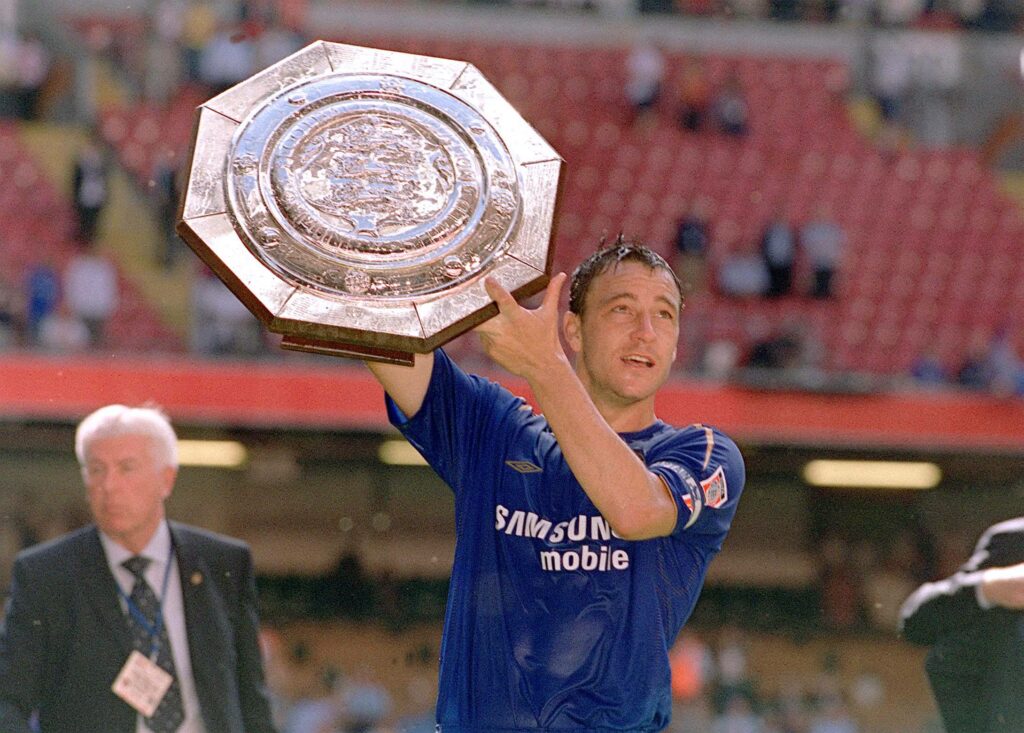
John Terry (source: Imago)
Personal Accolades: 1x PFA Players’ Player of the Year, 4x PFA Team of the Year, 5x FIFPro World XI, 3x UEFA Club Defender of the Year
Trophies: 5x Premier League, 5x FA Cup, 3x League Cup, 1x Champions League, 1x Europa League
John Terry is rightly regarded as one of the finest defenders of his generation. Terry made his breakthrough at Chelsea in 1998 after coming through the youth ranks at the Blues and West Ham United. The central defender would go on to play a vital role in the success that the Blues would achieve throughout the late 2000s and early 2010s, as he led from the front.
Terry was regarded as the best defender in the world throughout the most successful period in Chelsea’s history and was named the UEFA Club Defender of the Year on three occasions. He is also the most successful Chelsea campaign in the history of the club, having won the Premier League on five occasions and the Champions League during his 19-year stay at Stamford Bridge.
The Blues legend also holds a number of other records, including being the club’s highest scoring defender. Terry also became the first captain to lift the FA Cup at the new Wembley Stadium when Chelsea beat Manchester United in 2007, and would later become the first player to score an international goal at the stadium as England drew 1-1 with Brazil in the same year.
Thiago Silva
Age: 36 (22 September 1984)
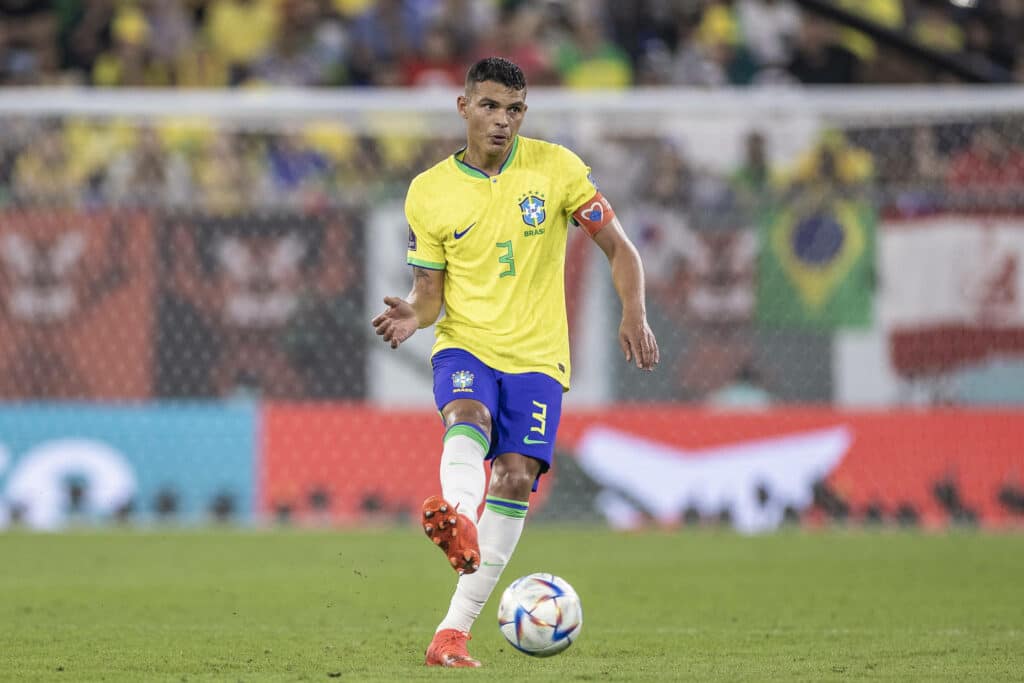
Thiago Silva Brazil 2022 Qatar World Cup (source: Imago)
Personal Accolades: 2x Serie A Team of the Year, 7x Ligue 1 Team of the Year, 3x UEFA Team of the Year, 1x Champions League Squad of the Season, 1x Copa America Team of the Tournament
Trophies: 1x Serie A, 7x Ligue 1, 1x Supercoppa Italiana, 1x Champions League, 1x UEFA Super Cup, 1x FIFA Club World Cup, 1x Copa America, 1x Confederations Cup
Thiago Silva may be a shock inclusion for the best footballers of all-time, but his longevity and success at the top level of the game deserves respect. The Brazilian central defender has been playing in the top five European leagues for over ten years since first joining AC Milan in 2009. Silva has shown his leadership qualities and prowess in the back line throughout his career, and has been a massive player for every club that he has played for.
He became the world’s most expensive defender in 2012 after signing for PSG, and he would go on to win seven Ligue 1 titles with the club. While at PSG, he also set the record for the longest-serving captain, and also ranks as their eighth-highest appearance making. However, many questioned whether he still had the ability to perform at the highest level when signing for Chelsea in 2020.
Those doubts were routinely answered in his first season with the club, as he would guide the Blues to a second Champions League success. At international level, Silva has represented Brazil since 2008, and has won over 100 caps. He has featured for Brazil in eight major finals, but only claimed success in the 2019 Copa America.
Best Midfielders
Zinedine Zidane
Age: 50 (23 June 1972)
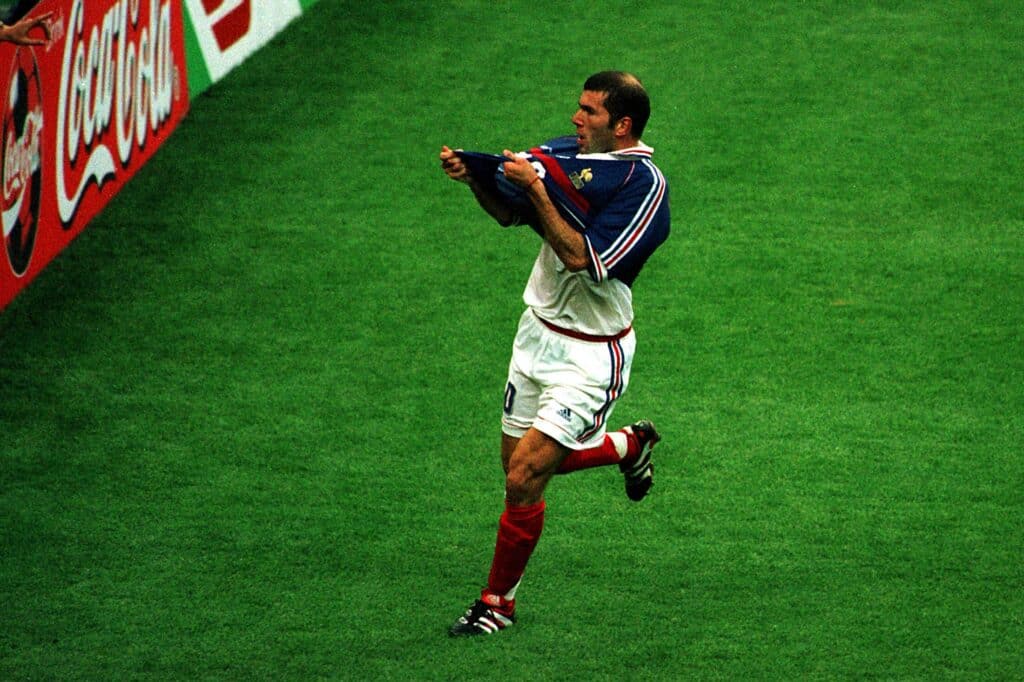
Zinedine Zidane World Cup Winner 1998 (source: Imago)
Personal Accolades: ESPN Player of the Decade, 3x UEFA Team of the Year, 1x Ballon d’Or, 3x ESM Team of the Year, 4x FIFA XI, 3x FIFA World Player of the Year
Trophies: 2x Serie A, 1x LaLiga, 1x Champions League, 2x UEFA Super Cup, 1998 FIFA World Cup, 2000 European Championships
When it comes to the argument of the all time greatest footballer, Zinedine Zidane is often a name that is near the top of every person’s list. The French star is certainly in the debate when it comes to the greatest footballer of all time, having represented some of the biggest clubs throughout his career. However, it was constantly his habit of turning up at the biggest moments that ensures his place on this list. In the 1998 World Cup final, Zidane scored twice, while he also netted the winner in the 2002 Champions League final.
Unlike the likes of Lionel Messi and Cristiano Ronaldo, Zidane’s brilliance was saved more so for the big occasions rather than spread out over the course of a season. However, his playmaking style was an inspiration for many of the stars that are now playing at the top level of the game. Zizou’s first domestic victories came during a five-year stay with Juventus, before he moved to Real Madrid in 2001 for a then-world record fee.
His left-footed volley to win the Champions League final in 2002 remains one of the greatest goals in the history of the competition. For France, he was a key part of the 1998 World Cup winning squad, while he also played a key role when the nation won the European Championships in 2000. Following his playing career, Zidane moved into management and became one of the greatest football managers of all time, winning the Champions League on three occasions and the La Liga title twice.
Steven Gerrard
Age: 42 (30 May 1980)
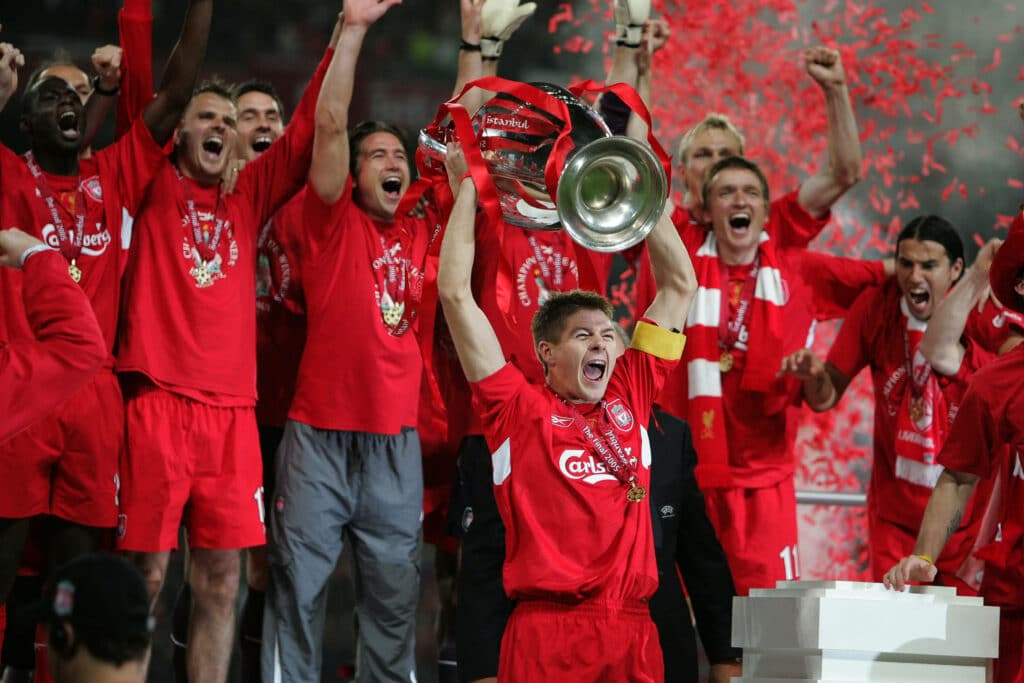
Liverpool FC captain Steven Gerrard Champions League winner 2005 (source: Imago)
Personal Accolades: 1x UEFA Club Footballer of the Year, 1x PFA Players’ Player of the Year, 1x FWA Footballer of the Year, Premier League Hall of Fame, 8x PFA Premier League Team of the Year
Trophies: 2x FA Cup, 3x League Cup, 1x Community Shield, 1x Champions League, 1x UEFA Cup, 1x UEFA Super Cup
In truth, Steven Gerrard may be the only player on this list without a domestic title to his name, but he still rightly deserves a place on this list of the all time greatest footballer. Gerrard may not have won a league title during his career, but he was a vitally important player for Liverpool throughout his career and is rightly regarded as one of the best Premier League players of all-time. The central midfielder made his debut for the Reds in 1998, and stayed at the club until 2015.
Like Zidane, Gerrard had the ability to drag his club out of dire situations in matches, and that was evident when the pressure was really on. The first evidence of that was in the 2004 Champions League final, as Gerrard scored the first goal for Liverpool as they came back from 3-0 down against AC Milan. The Englishman would play a prominent role once again at the end of the following season, as he scored twice against West Ham to lead Liverpool to FA Cup success.
Despite being one of the most talented players of his generation, Gerrard never won a domestic title or an international trophy. He was a mainstay in the England squad, dubbed the Golden Generation, and represented the Three Lions at the World Cup on three occasions and the European Championships three times. Since retiring, he has turned to management with limited success. He landed a first SPL title for Rangers in ten years before moving to Aston Villa, where he was sacked after just eleven months.
Ronaldinho
Age: 42 (21 March 1980)
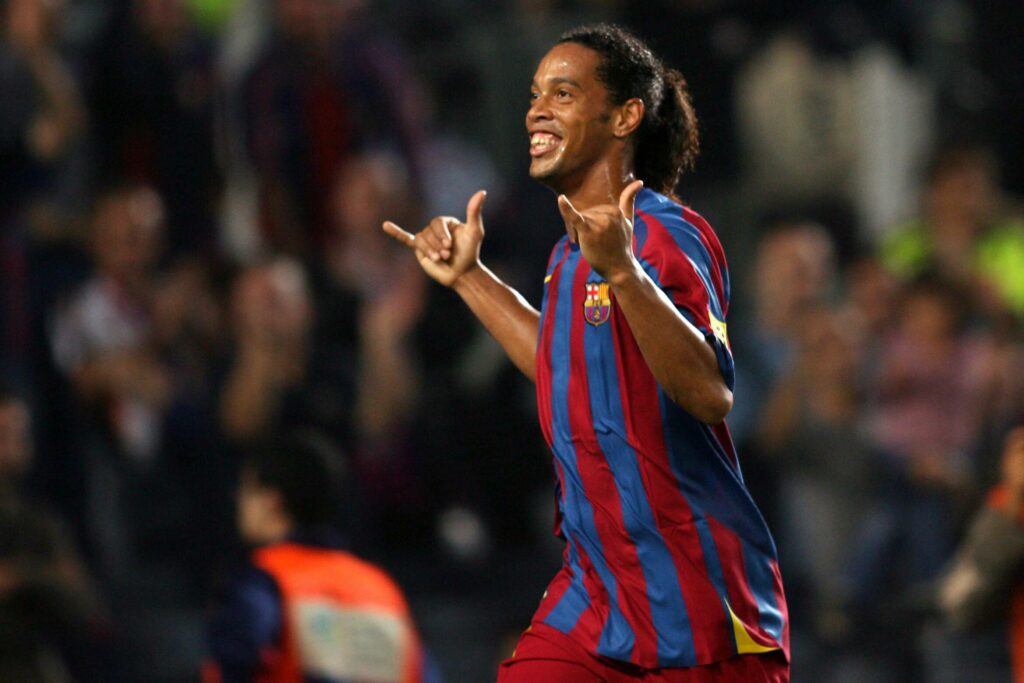
Ronaldinho Gaucho (source: Imago)
Personal Accolades: 1x Ballon d’Or, 2x FIFPro World Player of the Year, 1x UEFA Club Footballer of the Year, 2x World Soccer Magazine World Player of the Year, 1x UEFA Club Forward of the Year
Trophies: 2x LaLiga, 2x Supercopa de Espana, 1x Champions League, 1x Serie A, 1x Campeonato Carioca, 1999 Copa America, 2002 World Cup, 2005 Confederations Cup
Many of the greatest footballers of all time will be missing from our midfield section, such as legendary playmakers Xavi, Andreas Iniesta and Frank Lampard. But, it would be very hard to dismiss Ronaldinho as a contender for the greatest footballer of all time. The Brazilian superstar was a true samba icon throughout his career, and was a pioneering star for all legendary players that have followed. That is maybe none more the case than with Lionel Messi, who had a season to learn from Ronaldinho before having the spotlight to himself.
When assessing Ronaldinho, it’s always important to just look back at how unplayable he was between 2005 and 2007. At that time, we had seen very few players like him, as he was able to go past opposing defenders as if they weren’t there, and more often than not there was an end product. He was potentially responsible for one of the finest performances that we have seen in European football in the 2005-06 season, as the Brazilian scored two excellent solo goals in a win for Barcelona against Real Madrid, which saw Ronaldinho exit the field to a standing ovation at the Bernabeu.
Ronaldinho was also a prominent part of the famous Brazilian World Cup winning squad in 2002, as he formed a dynamic partnership alongside Ronaldo and Rivaldo. He would later guide Brazil to Confederations Cup glory, and win the bronze medal at the 2008 Olympics. Truly deserving of a legend to be placed on the list as the greatest footballer of all time.
Luka Modric
Age: 37 (9 September 1985)
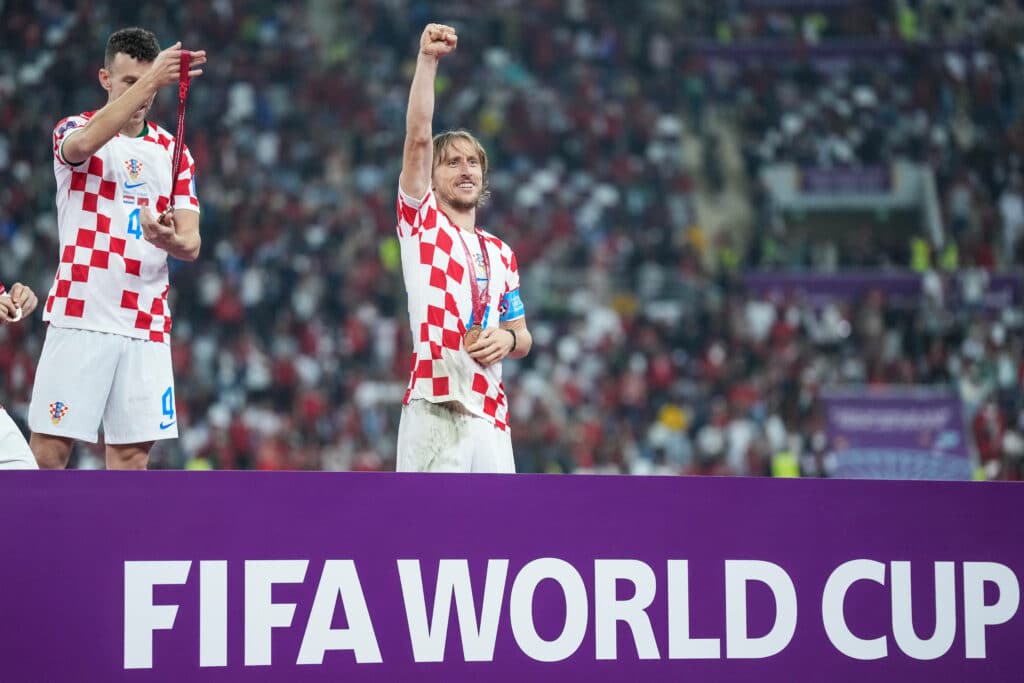
Luka Modric World Cup In Qatar 2022 (source: Imago)
Personal Accolades: 1x Ballon d’Or, 5x FIFPro World11, 2017 Club World Cup Golden Ball, 2018 World Cup Golden Ball, 1x UEFA Men’s Player of the Year, 1x The Best FIFA Men’s Player, 1x World Soccer Player of the Year
Trophies: 3x LaLiga, 1x Copa Del Rey, 5x Champions League, 4x UEFA Super Cup, 4x FIFA Club World Cup
The only active midfielder that we can rank among the best footballers of all time is Luka Modric. The Real Madrid superstar is an excellent example of how determination and the growing desire to improve can overcome all life’s challenges. It’s almost bizarre to think that he was ranked as Real Madrid’s worst signing when he arrived in Spain back in 2012.
However, a lot has changed since then, as he has won the La Liga title on three occasions and has landed success in the Champions League on five occasions. Modric was an essential component in the Zinedine Zidane squad that went on to win three consecutive Champions Leagues, and his importance for the club and his national side was evident in 2018.
In that year, he would become the first player other than Lionel Messi and Cristiano Ronaldo in over a decade to win the Ballon d’Or. He would also become the first Croatian player to win the UEFA Men’s Player of the Year, and Best FIFA Men’s Player of the Year.
Paul Scholes
Age: 48 (16 November 1974)
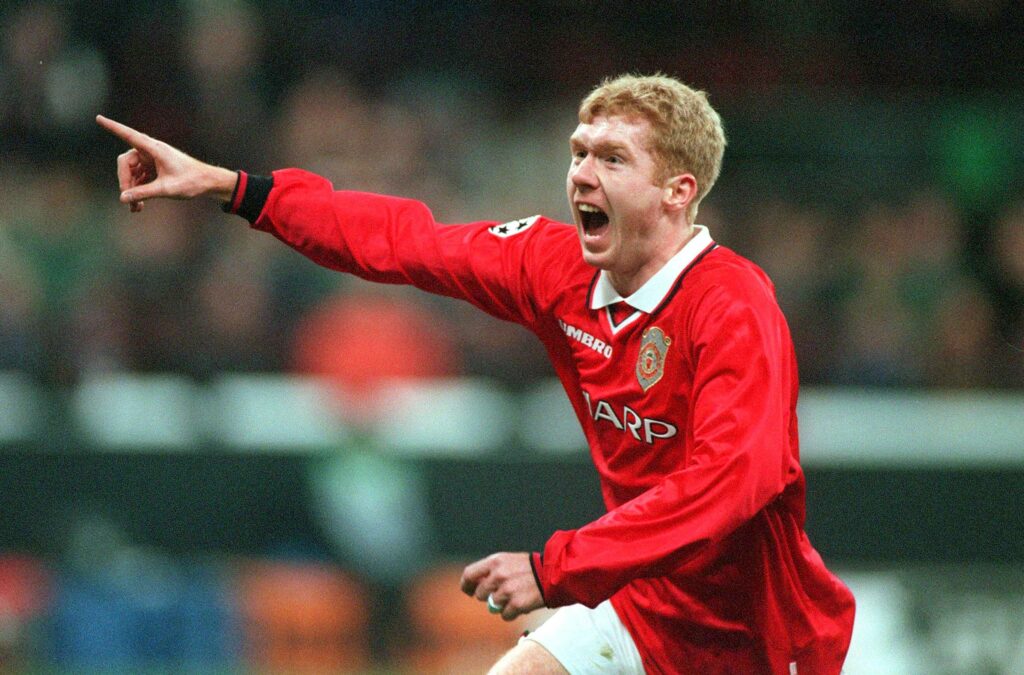
Paul Scholes (source: Imago)
Personal Accolades: Premier League Hall of Fame, English Football Hall of Fame, 2x PFA Team of the Year, FWA Tribute Award
Trophies: 11x Premier League, 3x FA Cup, 2x League Cup, 2x Champions League, 1x FIFA Club World Cup
Paul Scholes is regarded as one of the finest footballers to have ever played the game. Zinedine Zidane and Xavi both referenced Scholes when asked who the best midfielder on the planet was. The central midfielder came through the illustrious Class of 92 at Manchester United, alongside Ryan Giggs, David Beckham and the Neville brothers. He would remain at United until 2011 when he announced his retirement.
However, given the lack of talented midfielders around, Sir Alex Ferguson persuaded Scholes to come out of retirement in January 2012, and he came off from the bench to play the second half against Manchester City. The midfielder would win an eleventh Premier League title the following season, before once again announcing his retirement.
At international level, Scholes was mismanaged to a criminal level by Sven Goran Eriksen, as the Swedish boss in charge of the golden generation often opted to play the midfielder on the left-hand side of midfield. That would later play a role in the midfielder’s decision to retire from international football following England’s defeat to Portugal at EURO 2004.
Best Forwards
Ronaldo
Age: 46 (18 September 1976)
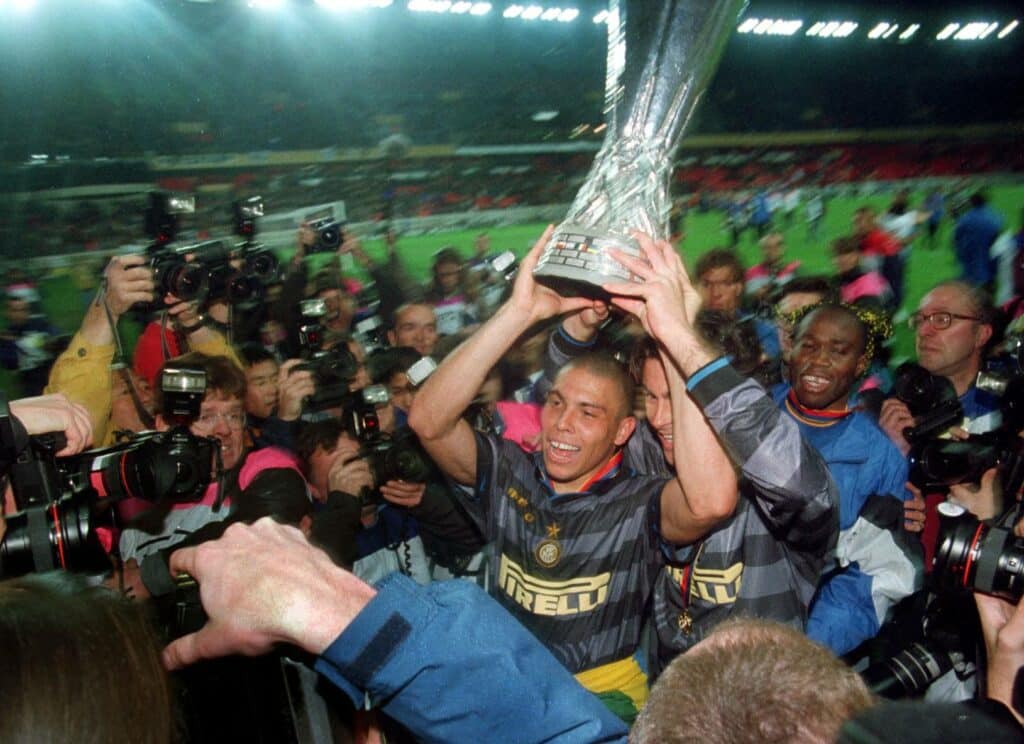
Ronaldo Nazario De Lima (source: Imago)
Personal Accolades: 3x FIFA World Player of the Year, 2x Ballon d’Or, 1x European Golden Shoe, 3x World Soccer Magazine World Player of the Year, 2x FIFA XI, 1x World Cup Final MVP, 1x BBC World Sport Star of the Year, Laureus World Sports Awards Comeback of the Year
Trophies: 2x LaLiga, 2x Supercopa de Espana, 1x UEFA Cup Winners’ Cup, 2x World Cup, 2x Copa America
It would be hard not to put Ronaldo into the conversation when it comes to the top five greatest footballer of all time. At his peak, there were few more frightening strikers in the world of football, with the Brazilian able to glide past opposing defenders with his blistering pace. The striker also boasts character that few other professionals can claim, as he was forced to miss the 1998 World Cup, despite being Brazil’s main chance of victory. His response was emphatic, as he scored twice in the World Cup final against Germany four years later.
His scoring record during his first three seasons with Real Madrid was staggering, as he scored at least 20 league goals, and 30 in all competitions in each of the seasons. However, injuries began to take a larger toll on his career, and his minutes were diminishing in his final two seasons with the Spanish giants. Unfortunately, he joined Real Madrid after their 2002 Champions League success, which means that he likely goes down as one of the best players to have never won the competition.
However, he more than made up for that at international level, as he scored 62 goals in 92 games for Brazil. He was the youngest member of the squad that won the World Cup in 1994, and he picked up the Golden Ball at the 1998 competition. However, his crowning moment would come in the 2002 final, as he scored twice to win the illustrious honour and land the Golden Boot. Four years later, he would score his 15th goal at the World Cup, setting a new record, which was later broken by Miroslav Klose.
Cristiano Ronaldo
Age: 37 (5 February 1985)
Personal Accolades: 5x Ballon d’Or, 1x FIFA World Player of the Year, 2x Best FIFA Men’s Player, 1x The Best FIFA Special Award For Outstanding Career Achievement, 4x European Golden Shoe, 2x PFA Players’ Player of the Year
Trophies: 3x Premier League, 1x FA Cup, 2x League Cup, 5x Champions League, 4x FIFA Club World Cup, 2x Copa del Rey, 2x Serie A, 1x Coppa Italia, 1x European Championship, 1x UEFA Nations League
Cristiano Ronaldo is undeniably in the conversation when it comes to the all time greatest footballer. The Portuguese superstar has enjoyed a career that surpasses many of the other greatest footballers of all time on this list, having won domestic titles in three of Europe’s top leagues. Furthermore, his record of having won the Champions League on five occasions across spells with Manchester United and Real Madrid is something few other players can match.
While his position in the list may be questioned, there’s no doubt he is a top five greatest footballer of all time. His club scoring record is staggering, as he scored at least 40 goals in all but one of his seasons with Real Madrid to become the Spanish side’s all-time leading scorer, while his best scoring season came in 2014-15, as he netted 61 in 54 games. His run of scoring continued during a three-year stay at Juventus, as he netted 101 goals in 134 games in all competitions.
Ronaldo also moved back to Manchester United in 2021, 12 years after departing Old Trafford. His scoring record in his full season back at the Theatre of Dreams was extremely strong, netting 24 goals in 38 games. At international level, he has represented Portugal on 190 occasions to date, making him the most capped player in Portuguese history. Meanwhile, he has scored 118 international goals, and has played in and scored in eleven major tournaments. Ronaldo would finally gain success with his national team by winning EURO 2016, and he could now be set for a money-spinning move to Saudi Arabia after the World Cup.
Lionel Messi
Age: 35 (24 June 1987)
Personal Accolades: 7x Ballon d’Or, 1x FIFA World Player of the Year, 1x The Best FIFA Men’s Player, 6x European Golden Shoe, 1x FIFA World Cup Golden Ball, 1x Laureus World Sportsman of the Year
Trophies: 10x La Liga, 7x Copa del Rey, 7x Supercopa de Espana, 4x Champions League, 3x UEFA Super Cup, 3x FIFA Club World Cup, 1x Ligue 1, 1x Copa America
For many, the greatest footballer of all time is Lionel Messi. The Argentinean superstar was part of one of the greatest football teams that we have seen in the European game, as he spearheaded the Barcelona attack throughout his career. His records speak for themselves, as no player in the history of football has won the Ballon d’Or on more occasions. Meanwhile, he has won the European Golden Shoe more than any other player.
Since the 2008-09 season, Messi has scored at least 30 goals in all competitions in every season that he has played. His highest scoring campaign came in 2011-12, as he netted a remarkable 73 goals in 60 fixtures. He has also breached the 50-goal barrier on five further occasions throughout his career. Messi finally called time on his career at the end of the 2020-21 season, as he moved to France and joined PSG. However, his move will likely be judged on any potential success in the Champions League.
In Argentina, many fans still believe that he must match the great Diego Maradona to become the greatest footballer of all time. That would mean finally getting his hands on the FIFA World Cup. The closest that Messi has come to success in the competition came in 2014, as Argentina were beaten in the final by Germany. However, it almost certainly looks like the 2022 World Cup will be his final opportunity to cement himself as one of the greatest footballers of all time.
Thierry Henry
Age: 45 (17 August 1977)
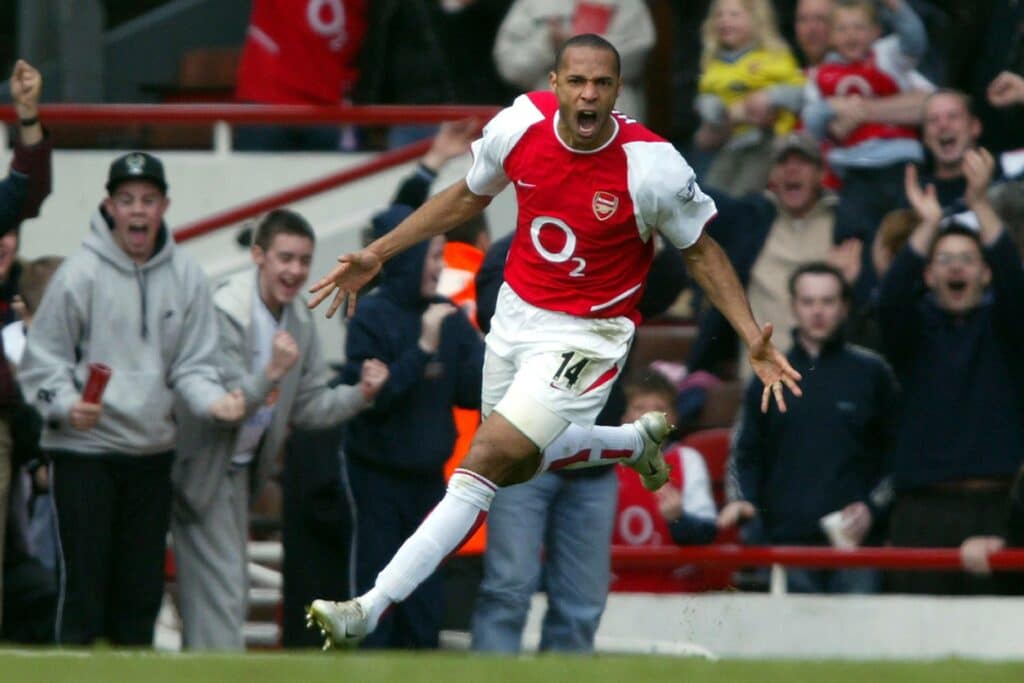
Thierry Henry (source: Imago)
Personal Accolades: Arsenal All-Time Leading Scorer, 3x FWA Footballer of the Year, 2x PFA Player’s Player of the Year, 4x Premier League Golden Boot
Trophies: 2x Premier League, 2x FA Cup, 2x LaLiga, 1x Copa del Rey, 1x Champions League, 2x UEFA Super Cup, 1998 FIFA World Cup, 2000 European Championship
It would be incredibly hard to leave Thierry Henry off a list when talking about the greatest footballers of all time. During his prime, there was no better player on the planet than the Frenchman, and he was inexcusably denied the honour of winning the Ballon d’Or in both 2003 and 2006. The best years of Henry’s career were spent at Arsenal, as he scored a record 228 goals for the club.
His best scoring season for the Gunners came in 2003-04, as he scored 30 Premier League goals in 37 games as the club went unbeaten throughout the season. Henry would later continue his trend of scoring at least 30 goals a season up until his final campaign at the Emirates in 2006-07.
Despite leaving the Gunners in 2007, he would continue to play a prominent role in one of the most successful teams at Barcelona. During a three-year stint at the Nou Camp, Henry would scored over 40 goals, and play a vital role in the Spanish giant’s treble winning campaign under Pep Guardiola. Henry would also achieve success at international level, winning the World Cup in 1998 and the European Championships in 2000.
Alan Shearer
Age: 52 (13 August 1970)
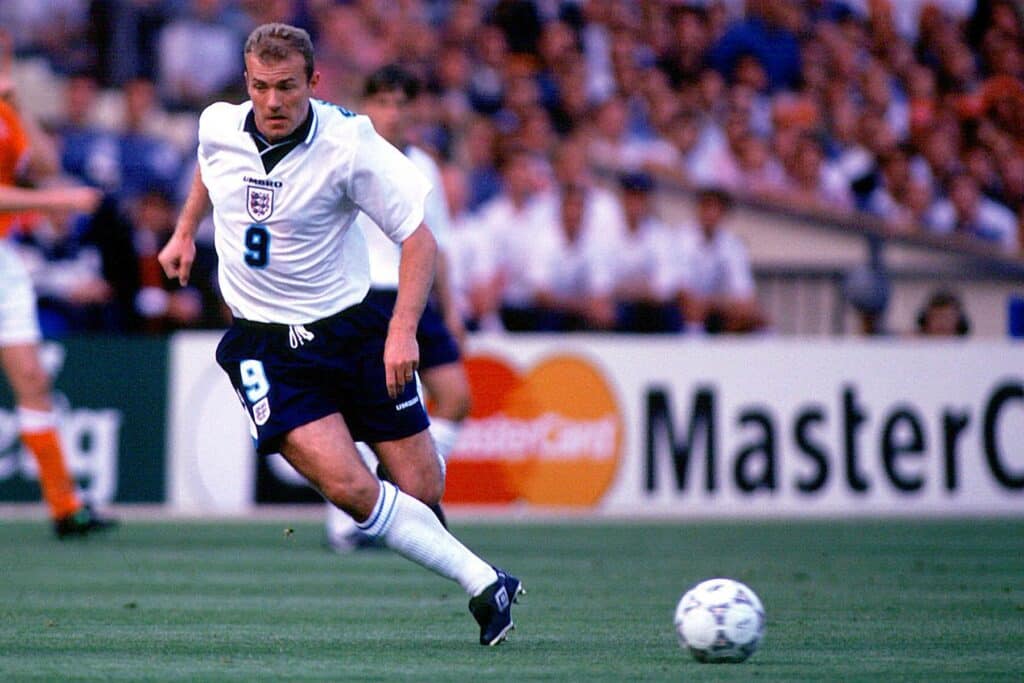
Alan Shearer (source: Imago)
Personal Accolades: Premier League Record Scorer, 1x FWA Player of the Year, 1x PFA Player of the Year, Premier League Hall of Fame
Trophies: 1x Premier League
Given that I have never seen the likes of Pele and Romario play live, Alan Shearer makes it into my list of the all time greatest footballers. The striker was one of the most prolific throughout his career, and his career could have worked out with slightly more honours had he opted to join Manchester United over his boyhood club Newcastle United in 1996. However, Shearer remains the most prolific striker in Premier League history, having scored 160 goals in the English top-flight.
Despite his achievements never being recognised abroad, he was named in Pele’s list of the best 100 players still living back in 2004. Shearer’s only domestic success would come with Blackburn Rovers in 1995, before he moved to Newcastle United in the following summer for a world record fee of £15 million. Shearer would come up just short in his goal to win a trophy at his boyhood club, losing the FA Cup final in both 1998 and 1999.
The striker continued to show his excellent form at international level, and scored 30 goals in 63 games for England. He also won the Golden Boot at EURO 96, but was helpless as England under delivered at both the 1998 World Cup and EURO 2000. But, his dominance at domestic level during a tough period in the Premier League makes him more than deserving of a place in the best strikers to have played the game.
Who Is The Greatest Footballer of All Time?
Despite talking about some of the greatest football player of all time throughout this article, we still need to come up with a definite list of top five. Given that we have physically never seen the likes of Diego Maradona, George Best and Pele play, it would be hard to enter them into the discussion of who is the greatest footballer of all time. However, the top 5 greatest footballer of all time in our opinion at FootySamba can be found below:
- Ronaldinho
- Ronaldo
- Zinedine Zidane
- Lionel Messi
- Cristiano Ronaldo
Our top five of who is the greatest football of all time has taken into account the importance of the players in the teams that they have played in. Furthermore, it has also considered the versatility of the players, and how they have fared both in other leagues around the world, and on the international stage. Given Cristiano Ronaldo has proven himself in three of the hardest leagues in the world and has won domestic titles in the Premier League, Serie A and La Liga, we just put him ahead of Messi. But, an Argentina success at the World Cup could swing the judgement, as a success in Qatar could make the star unquestionably the greatest football player of all time.
We also still believe that Ronaldinho, Zinedine Zidane and Ronaldo are also deserving of their place in the list of the greatest players of all time football. All stars transcended the sport throughout their careers, and broke down barriers for the stars that we see strutting their stuff every week. If it wasn’t for players like that, which got fans off their edge of their seat, then it’s unlikely that European clubs would have taken chances on stars such as Vinicius Jr and Neymar in the present day.
However, we understand that some fans may still question who is the greatest football of all time, and you can feel free to continue the discussion in the comments below.
